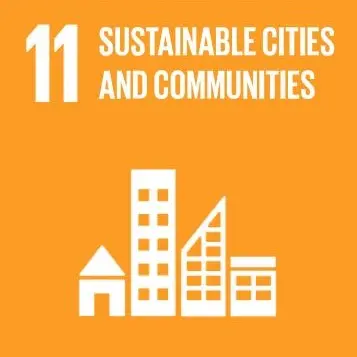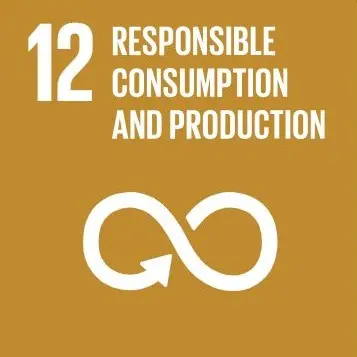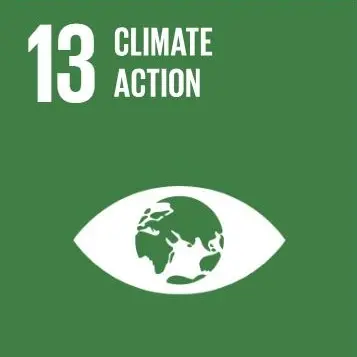Master in Sustainability Science – Environment and Decision Making 120 cr
Would you like to take decisions that make a difference? In our new master’s programme, which is online, you will gain in-depth knowledge in environmental science. At the same time, you will become a professional in making the decisions that are required for us to move closer to a sustainable society.
Credits
120 cr
Application code
HIG-19714
Application deadline
april 15, 2024
Form of education
Distance learning
Language
English
Study time
september 2, 2024–juni 7, 2026
Prerequisites
In order to be eligible for the program, a degree is required at the undergraduate level, comprising at least 180 higher education credits
- 60 higher education credits in the major area of sustainability science, environmental engineering, technology, psychology, industrial design and natural resource management or other relevant major area.
English language proficiency equivalent to (the Swedish upper secondary school) English course 6.
Selection
Higher education credit
Credits
120 cr
Application code
HIG-19709
Application deadline
januari 15, 2024
Form of education
Distance learning
Language
English
Study time
september 2, 2024–juni 7, 2026
Prerequisites
In order to be eligible for the program, a degree is required at the undergraduate level, comprising at least 180 higher education credits
- 60 higher education credits in the major area of sustainability science, environmental engineering, technology, psychology, industrial design and natural resource management or other relevant major area.
English language proficiency equivalent to (the Swedish upper secondary school) English course 6.
Selection
Higher education credit
About the programme
The program comprises 120 higher education credits and leads to a Master's degree in Environmental Science. The study form is distance and the study rate is 100%. The full-time studies are arranged in such a way that the students sequentially read courses of 7.5 higher education credits throughout the program, apart from the master's thesis, which comprises 30 higher education credits. All courses except one course are in the main area of Environmental Science and give the students broad and deep knowledge, skills and attitudes within the main area in which they graduate. In addition, the program provides broad and in-depth knowledge of the concept of sustainability and tools and strategies for achieving change at various levels, both at individual, group, organizational and community levels. Special emphasis is given to decision-making throughout the program, both directly and indirectly. Students gain knowledge and skills in decision-making, the conditions of decision-making, processes and tools, especially in relation to sustainable development.
The program also provides students with tools and capabilities to measure, change, and track environmental impacts from people, objects, and systems. In addition, the program provides students with an understanding of psychological processes that influence decision-making, at the individual level and in groups. Students are also given knowledge in group processes, social psychology, leadership, as well as the ability to lead projects for sustainable development.
Throughout the program, generic abilities are trained, in particular decision making (to make decisions for yourself, to apply decision making tools, and to understand the background to systematic errors in decision making), critical thinking, analytical skills (through scientific methodology and training in intellectual abilities), leadership and project management. , the scientific writing and to express themselves well in text and dialogue. The latter part of the training deepens the knowledge within the above-mentioned knowledge and skills areas.
Arrangement
During the first year of the program, the student reads an introductory course related to sustainability science and systems analysis, which is followed by scientific method, behavior and attitude change, and natural resource management and social-ecological systems. Then there will be courses on strategic management for sustainable development and complex problems in a sustainability context, where the students also receive decision-making tools that are specially adapted to solve complex problems. During the first year, the student will also receive tools for strategic environmental assessment and the ability to measure and follow up on change work. The first year ends with a course on group decision-making, social psychological processes that affect groups and group development and leadership for sustainable development.
During the second year of the program will be in-depth courses in life-cycle analysis and measurement of environmental impact, in-depth courses in psychological perspectives on decision-making, as well as in-depth knowledge of scientific method, science theory and governance of organizations and communities that prepare the student for thesis work.
Degree
Degree of Master (120 cr)
Fields within the programme Year 1
Gain unique knowledge
Environmental science is an interdisciplinary subject in which we highlight environmental issues from different perspectives. In our master’s programme, we specialise within three areas:
- Environmental engineering—design and environmental evaluation of technological systems
- Environmental psychology—environment, behaviour and psychological processes
- Social-ecological systems—the interaction between humans and ecosystems
We study how these areas interconnect and how they can be used to support decision-making for sustainable development at different levels in society. This is a unique combination that you will only find at University of Gävle. In our master´s programme, psychology plays an important role. We need to understand how our behaviour prevents, but at the same time, is an opportunity for sustainable change in technology and in society. In our master’s programmes, you will also gain advanced knowledge in decision-making and leadership.
Your degree
As a graduate from the programme, you will receive a degree in the main field of study environmental science which offers:
- Broad and in-depth knowledge within the subject environmental science
- Strategies and tools to make a difference, especially within decision-making at different levels of analysis
- The ability to make a difference in the journey towards increased sustainability, both within the private and the public sector
- The ability to lead and organise projects
- The ability to engage in environmental impact assessment in relation to humans, objects and systems
Generic abilities, especially the abilities to analyse, to predict, to critically evaluate, to lead and to make decisions as well as the abilities to conduct investigations and to gather information that guides decision makers.
Many career opportunities
As a graduate from this programme, there will be many possible positions connected to the environment and sustainable development available to you, in the private and the public sector as well as within consulting services. Typical positions are environmental/climate strategist, environmental controller, environmental administrator, environmental inspector, environmental coordinator, environmental/sustainability manager, and sustainability organisational.
Are you interested in research? This programme is a solid basis for your academic career. A third-cycle programme provides you with opportunities for in-depth, specialised studies. At University of Gävle, we conduct research on sustainable development within a number of exiting fields.
The world needs your professional skills
As we face increasingly greater environmental challenges, the demand for you will increase. Environmental and sustainability issues have become strategically important within an increasing number of organisations and businesses. Your future workplace could be a large or medium-sized enterprise, a consulting company, an organisation or a position within the public sector—on a local, regional, national or global level. Environmental issues are global and so is your labour market.
The Global Goals



Read more about the programme and the UN Sustainable Development Goals
The programme is connected to several of the Global Goals for Sustainable Development adopted by the UN. Primarily, there are connections to goals 11, 12 and 13. There are secondary connections to goals 14, 15, 16, and 17.
Central in the programme, aim is to contribute low impact on the natural environment through good management, planning and housekeeping with natural resources and limited emissions to air, land and water which, in the long run, increase human well-being, from both systems, societal and individual perspectives. At the same time, integrating gender equality is also important for mitigation and adaptation actions for the sustainable development.
11 Sustainable Cities and Communities
It is important that cities and communities are inclusive, safe, resilient and sustainable. You learn concepts, theories and perspectives on issues such as resilience, management of natural resources and social-ecological systems, urban sustainability, transitions and governance.
12 Responsible Consumption and Production
To reduce negative repercussions for human health and the environment, a transition to sustainable consumption and production is required. You will gain knowledge about solutions and tools to design and implement systems, goods, and services in order to help society shift in a more circular path.
13 Climate action
The main aim of sustainability science is to reduce human negative environmental impact, with a particular focus on climate change, and at the same time to build local social-ecological resilience. You learn theories, tools for environmental assessment and perspectives of attitudes and behaviors that lead to sustainable future.
This page was last updated 2024-04-25

